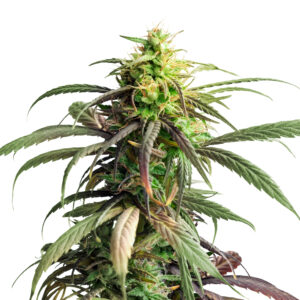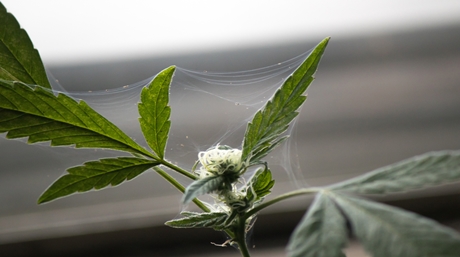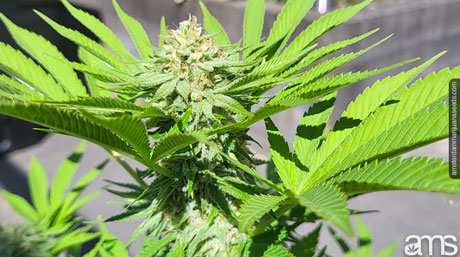Marijuana is surrounded by many misconceptions that continue to shape public opinion and policy. In this article, we will address 6 common myths about marijuana and separate fact from fiction. Understanding the truth behind these myths can help reduce stigma and provide clearer insights into cannabis use and its effects.
One of the most persistent myths about marijuana is that smoking it damages your lungs more than smoking tobacco. However, research shows that occasional marijuana use does not have the same negative effects on lung function as tobacco smoking. Unlike cigarettes, marijuana is typically smoked without additives and in lower quantities. For those concerned about lung health, alternatives like vaping or edibles can offer safer consumption methods.
One of the most widespread myths about marijuana is that it acts as a gateway drug, leading users to harder, more dangerous substances. This idea has persisted for decades, often shaping public opinion and drug policies.
However, according to research from the National Institute on Drug Abuse (NIDA), marijuana use does not inevitably lead to the consumption of harder drugs. While some people who use heroin, cocaine, or methamphetamine may have used marijuana previously, this does not imply a direct causal relationship. Various factors, including environment, genetics, and personal circumstances, play a more significant role in drug progression.
It is also important to note that substances like alcohol and tobacco are commonly used before marijuana, yet they do not receive the same “gateway” label. Current data suggests that marijuana itself is not a reliable predictor of future use of harder drugs, debunking this persistent myth.
Another common belief is that marijuana is highly addictive. While cannabis can lead to dependency in some users, the risk of addiction is significantly lower compared to substances like alcohol, nicotine, or opioids.
Scientific research shows that less than 10% of cannabis users develop cannabis use disorder, and heavy daily users are more likely to experience dependence. However, many myths about marijuana exaggerate this risk, as cannabis does not cause physical withdrawal symptoms like many other addictive drugs.
Many people who use cannabis do so recreationally without developing problematic behaviors. For those who do develop dependence, it is often linked to psychological factors or habitual use rather than true physical addiction.
It’s important to differentiate between casual use and addiction, and to recognize that cannabis use affects individuals differently based on genetics, environment, and personal history.
Another myth that needs to be busted is that cannabis kills brain cells. There have been many studies on what marijuana does to your brain. The findings of the University of Louisville have determined that it doesn’t kill off your brain cells, thankfully. This study collaborates with a 2003 report in the Journal of the International Neuropsychological Society published by Cambridge University making the same claim.
So, even though you may say dumb or insensible things when you’re high, it doesn’t mean that you have just fried your brain cells. To better understand how cannabis impacts the brain, you can read our article Is weed a stimulant or depressant?
Many people believe that driving while high on marijuana is just as risky as drunk driving. However, studies show that while cannabis can impair motor skills and reaction times, its effects on driving are generally less severe than those of alcohol.
It’s important to recognize that any substance affecting cognition can increase accident risk, so myths about marijuana must not downplay the dangers of impaired driving. Some cannabis users report feeling more cautious and aware while driving, but the safest choice is to avoid driving under the influence altogether.
Ongoing research continues to clarify how marijuana impacts driving ability and public safety.
A common misconception is that it’s possible to have a fatal overdose from marijuana. Unlike opioids or alcohol, marijuana does not influence the brain areas that control breathing, making a lethal overdose virtually impossible.
Scientific research supports this, showing no documented cases of death solely caused by marijuana overdose. Despite this, excessive consumption can lead to unpleasant effects like anxiety or paranoia, but these are temporary and not life-threatening.
Understanding these facts is key to dispelling myths about marijuana and promoting safe use.
Understanding and debunking the most common myths about marijuana helps build a clearer and more accurate view of cannabis. Many misconceptions are based on outdated information or fear rather than facts.
Clearing up these myths about marijuana allows for better education, reduced stigma, and more responsible use. Staying informed through reliable sources is key to appreciating both the risks and benefits of cannabis in today’s world.













Related Posts

It is something every gardener has dealt with at some time. Whether you grow cannabis plants or you grow blackberries, some pest is just as interested in your plant as you are. One day you may walk out to find all of the leaves on your plant chewed up or you may find fine webbing surrounding all of your plants. What do you do?

This article explores the complex relationship between cannabis and hypertension, detailing potential effects, benefits, risks, and important medical considerations.

The mystery and greatest question of them all “WHY MARIJUANA” explained finally and forever.
Why marijuana – human achievement and the consequences
We live our hours and days in task related neuropathways based on logical thinking. We can push ourselves to do one thing for hours and hours until it’s done, disregarding our feelings of “enough of this” begging…